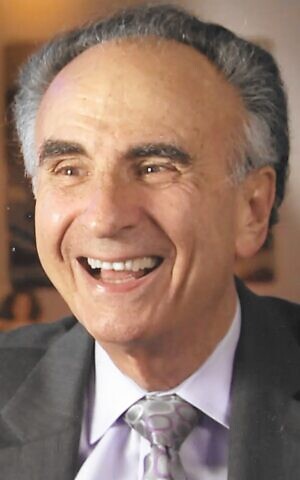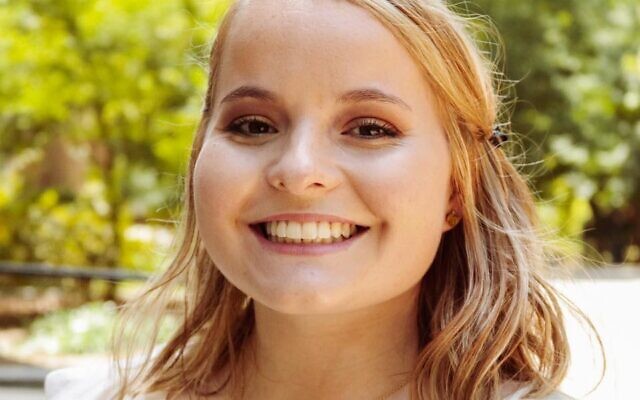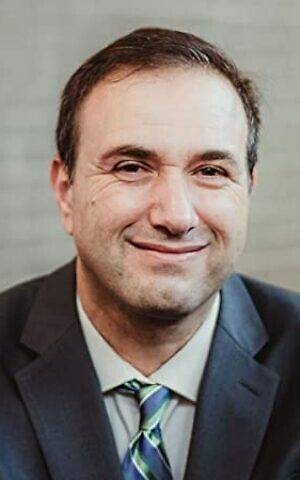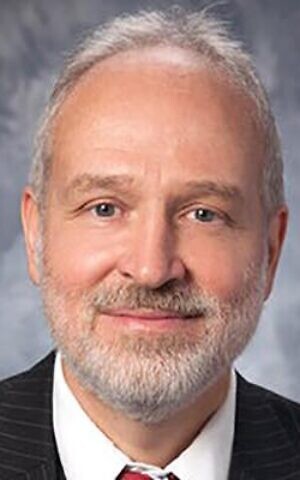UGA Panel Addresses ‘Deep-Fried Anti-Semitism’
Experts say that antisemitism in the South has definitely taken on new and more virulent forms.
According to a panel of speakers at the University of Georgia, antisemitism has been around for decades, especially in the South, but has definitely taken on new and more virulent forms.
“Anti-Semitism comes in various shapes and forms,” said Gary D. Grossman, a UGA professor and head of the STEM section of the Academic Engagement Network — a national NGO that fights antisemitism on college and university campuses — to open the “Deep-Fried Anti-Semitism” panel on March 20.
Grossman was one of several speakers who noted that they had lost family members during the Holocaust. He began by citing several examples of antisemitism on college campuses, including academic boycotts of Israeli teachers and a survey of Jewish students that indicated that many feel unsafe because they are Jewish, and are increasingly inclined to hide that identity.

Atlanta dentist Perry Brickman related that, in previous decades, Jewish students didn’t even have safety in numbers. Although he didn’t experience any antisemitism in Chattanooga when he was a young boy, all that changed when he attended Emory University in 1949. He recalled that, in those days, the Jewish fraternities were located off campus, unlike the non-Jewish fraternities.
His experience only worsened when he graduated and attended Emory’s dental school.
Yet it wasn’t until 2006 that Brickman came face to face with an exhibit on the history of Jewish life at Emory and saw documents that, according to his book, “Extracted: Unmasking Rampant Antisemitism in America’s Higher Education,” strongly suggested “that Brickman and many others had been failed out of Emory’s dental school because they were Jewish.” His subsequent research, during the course of which he interviewed more than 75 people, resulted in a book.
As Brickman noted, he and his fellow Jewish dental students “didn’t have a clue about what would happen” to them. “I was naïve. The four of us didn’t have a chance.”

Today, UGA graduate Rebecca Wilson said that she’s seen surveys in which 95 percent of Jewish college students and recent graduates “agree that anti-Semitism is a problem on their campuses. Eighty percent of respondents experienced offensive or threatening anti-Semitic comments,” she said.
Some of those comments, Wilson said, came from professors. She quoted both students and faculty downplaying the Holocaust and comparing it to slavery and suggested that university life could be improved for students if antisemitism was part of the diversity and inclusion orientation for students, faculty and staff. She also recommended that schools do a better job of listening to Jewish students and do more to support Jewish life on campuses.

Participants attending the Deep-Fried Anti-Semitism panel either in person or virtually also heard from Israeli-born Motti Inbari, a professor of religion at the University of North Carolina-Pembroke.
He has surveyed evangelical pastors and studied replacement theology, or “supersessionism,” a view that asserts that the Christian covenant through Jesus Christ has replaced the Mosaic covenant, and that Christians have therefore replaced Jews as the people of G-d. His research has focused on how Christian antisemitism is manifested in the evangelical community, which, he noted, is strongest in the South.
Inbari was followed by John Dayton, a fellow panelist and UGA professor of education law, who focused on white Christian nationalism, which he said is “increasingly more radical and aggressive.” He defined white Christian nationalism as the “belief that G-d gave the land of the United States to white Christians by divine decree, and the others are, at best, visitors.”
Dayton said that the behavior of those who believe in this doctrine mirrors the behavior of Islamic terrorists. Both groups support violence and attacks on voting rights, he said. “They are increasingly unhinged.”
Dayton echoed Inbari in speaking of replacement theology, which has gained ground in recent years. He cited perhaps the strongest display of this strain of thought, which occurred in 2017 in Charlottesville, Va., when white extremists and neo-Nazis marched with tiki torches and chanted, “Jews will not replace us.”

Dayton believes that the growth in radicalism can be attributed to the overall decline of Christianity in the U.S. “White Christians are no longer a majority in the U.S.,” he said. “This is a demographic timebomb for white Christians.” Whites are projected to lose their majority by 2043, Dayton added.
This is a problem, since white Christians believe that democracy is only legitimate for them, as long as they are in the majority, and that they have a duty to “take back their nation,” Dayton said. They believe that they are being replaced by people of color, and that Jews are responsible for that. “This anti-Semitism is big in the South,” he said.
According to Dayton, one example is the increasing use of Christian symbols and prayers in public schools, despite the fact that it’s illegal for public officials to partake in religious displays. “Teachers should not be preachers in the classroom,” he said. “In the South, many schools are controlled by white Christian nationalists. These coachled prayers [before games] are not harmless.”
Dayton compared these fanatics to cross-burners. “This becomes a tool of intimidation,” he said. Ultimately, “Jews are only safe in pluralistic democracies. Democracy and the rule of law is the only thing holding back white Christian nationalism.”




comments